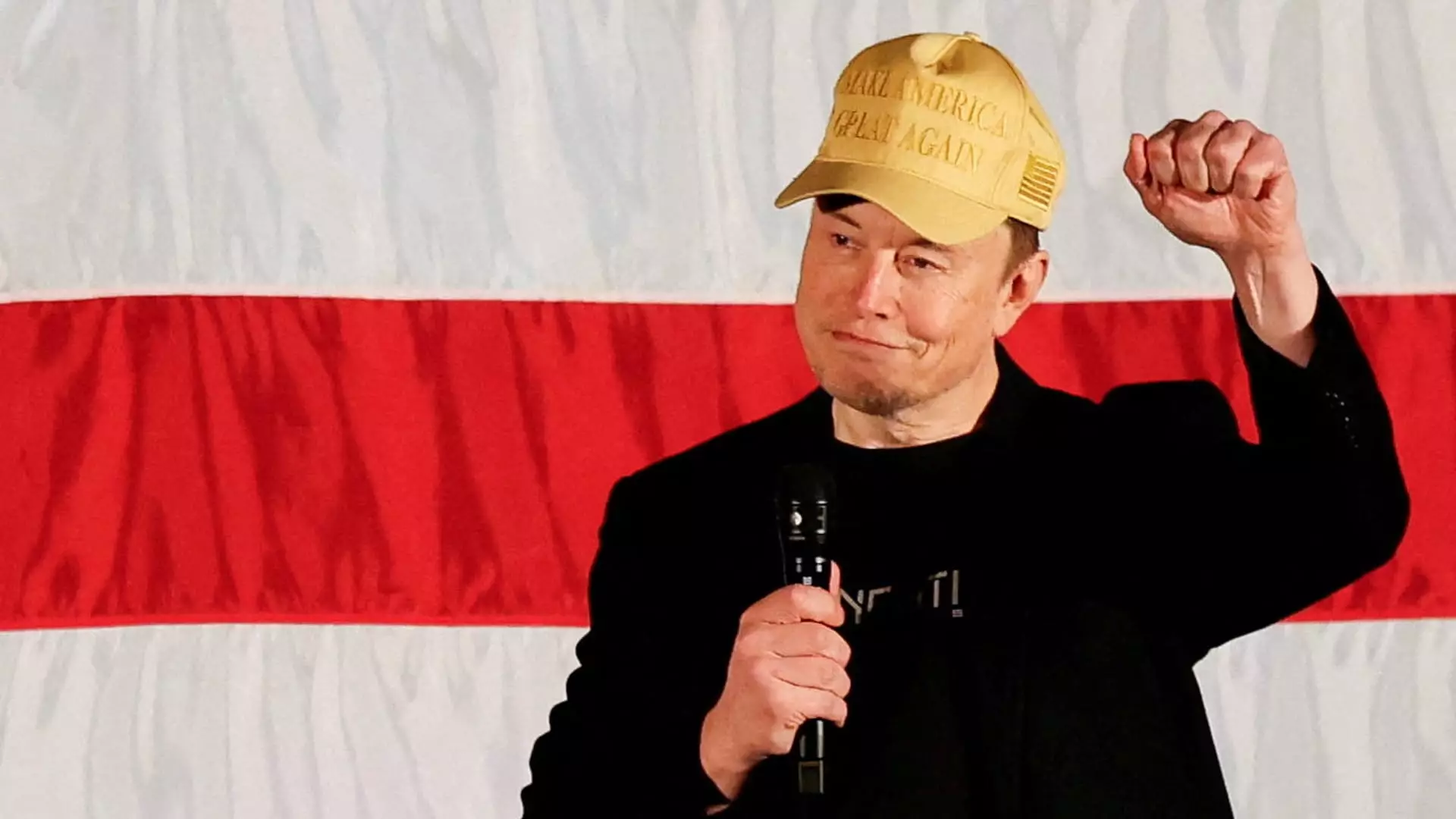Elon Musk, the billionaire entrepreneur known for his ventures in technology and space exploration, made headlines recently with a shocking announcement during a political event in Harrisburg, Pennsylvania. The Tesla and SpaceX CEO pledged to donate a staggering $1 million per day to registered voters willing to support his pro-Trump political action committee. This initiative, framed as a tactic to galvanize voters in critical swing states as the election approaches, raises significant ethical and legal questions about the intersection of money, politics, and voter engagement.
During a gathering intended to stimulate political activism, Musk declared that participants who signed a petition supporting his political agenda could receive financial rewards. He underscored that the funds could be accessed daily up until the election, aiming to draw attention to the importance of voter turnout in key states. Musk’s announcement was punctuated by the dramatic presentation of a check to a petition signer, symbolizing his commitment to incentivizing political engagement, albeit through a controversial lens.
The premise of offering money for participation raises fundamental concerns. Critics argue that such initiatives serve to commodify votes, potentially undermining the democratic process. Further complicating matters, Musk’s declaration included specific eligibility criteria that focused on voters from particular states, suggesting a targeted strategy rather than a universal call to action.
According to election law expert Rick Hasen, Musk’s program likely contravenes federal regulations designed to prevent the monetization of voting. These laws aim to safeguard the integrity of elections by prohibiting any form of coercion or financial incentive related to voter registration or voting activities. Hasen’s assertion that “Congress has determined you should not be able to sell your vote to the highest bidder” resonates deeply in a political climate where trust in the electoral system is paramount.
Beyond legal violations, the ethical implications of Musk’s campaign are troubling. The use of wealth to influence the political landscape raises critical questions about fairness and equity in democracy. The potential for financial rewards to distort political allegiance, where a vote may be swayed by the prospect of monetary gain, is a precarious path that risks disillusioning the electorate.
Musk’s appearances have included a barrage of controversial rhetoric, including support for debunked claims of voter fraud and sharp criticisms of government oversight. During his speeches, he has characterized key political figures, such as President Biden and Vice President Harris, in unflattering terms, which aligns with a broader narrative of distrust toward the current administration. This hostility is underscored by his claim that agencies like the Environmental Protection Agency and the Federal Aviation Administration hinder progress and innovation.
Interestingly, despite his criticism of governmental regulation, Musk’s enterprises have reaped substantial benefits from government contracts and subsidies. This paradox illustrates a broader inconsistency in his ideological stance: promoting deregulation while simultaneously relying on governmental support for business viability. Such contradictions reflect a complicated relationship with governmental authority that can lead to a fragmented public perception of his motives and message.
The public reaction to Musk’s scheme has been mixed, blending intrigue with skepticism. Some view his initiative as a novel way to stimulate voter participation, particularly in states where turnout is crucial for Republican success. Others see it as a reflection of the troubling trend of money increasingly influencing politics, potentially drowning out the voices of those without financial resources to engage in such an exchange.
As the election date approaches, the potential for Musk’s strategies to impact campaign dynamics cannot be overlooked. The notion that financial incentives could reshape voter engagement may set a problematic precedent for future political campaigns. If larger-than-life figures like Musk employ wealth as a vehicle for influence, it’s conceivable that similar tactics could proliferate, diminishing the very fabric of grassroots political movements.
Elon Musk’s foray into electoral politics encapsulates the complexities of modern American democracy, where financial power often collides with political ambitions. While the motivations behind his $1 million daily giveaway might be rooted in fostering engagement, the broader implications of such a strategy invite a critical examination of ethics, legality, and the integrity of the democratic process. As the election draws near, stakeholders must grapple with the profound questions raised by Musk’s actions and their potential consequences for the future of political engagement in the United States.


Leave a Reply